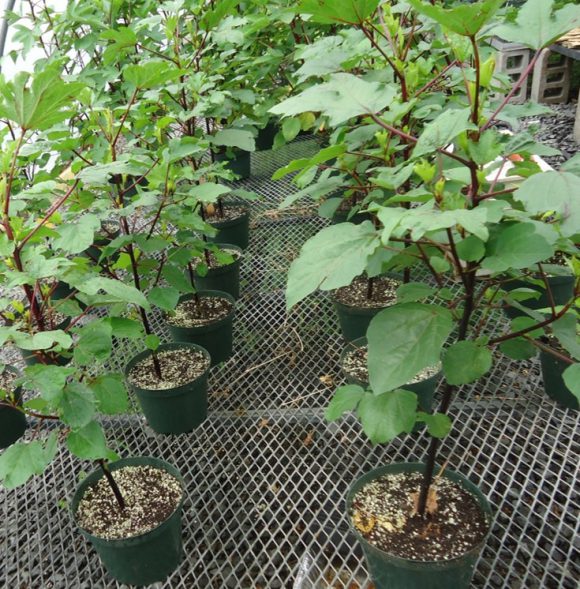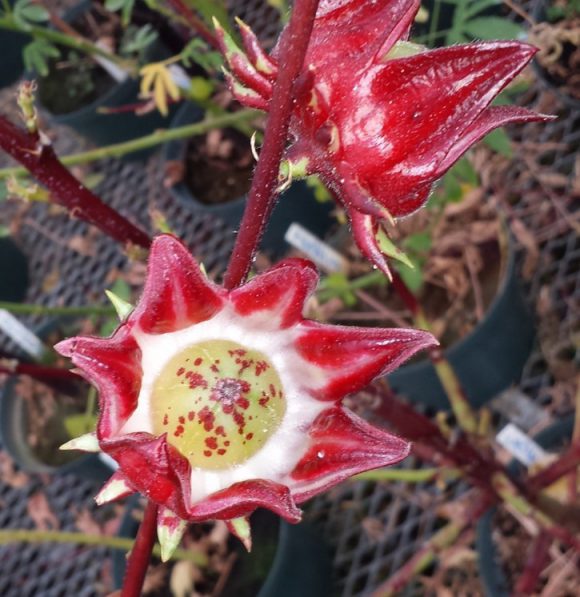
Roselle plants.
New Jersey growers will get a chance to see whether they’d like to farm roselle –a plant of the hibiscus family whose leaf is commonly used among some ethnic populations for food preparations similar to spinach. The calyx and flower are used in a variety of ways, including making of tea, jam, jelly, juice, wine, syrup, gelatin, pudding, cake, ice cream, flavoring and coloring.
Part of the Rutgers Cooperative Extension Ultra-Niche Crop Series, the Jan. 23 workshop, “Farming Roselle,” is the ninth class in the educational series for farmers seeking new crop opportunities. Registration ends Jan. 19 for the class, which will be held at the Rutgers EcoComplex in Bordentown, New Jersey.
Ultra-niche crops are defined as exceptionally high-value crops that can provide a significant source of income to the farmer while using a minimal amount of land. Among the crops identified as an ultra-niche crop, the growing of roselle is seen as a potentially lucrative market for farmers.

The flower of a roselle plant.
Participants will be led through worksheets to help them determine whether or not growing this crop is right for them, their acreage and their situation. In particular, they will learn how to grow, market and sell roselle as well as how to make practical decisions about marketing and crop production. The workshop will feature a 20-minute “Virtual Field Trip” video on the production and marketing of roselle. Pesticide recertification credits are also available
Ramu Govindasamy, extension specialist and chair of the Department of Agricultural, Food and Resource Economics, will make a presentation on how to market ethnic crops while Albert Ayeni, ethnic crop specialist in the Department of Plant Biology, will answer questions related to the production of roselle and other ethnic crops.
The Ultra-Niche Crops Project is sponsored by a grant from the USDA-NIFA Beginning Farmer and Rancher Development Program with the purpose of giving new and beginning farmers an introduction to crops that can help them make more money on less land.
To find out more about the Rutgers Ultra-Niche Crops Project, visit its website.

